RALEIGH — A Republican operative conducted an illegal and well-funded ballot-harvesting operation, North Carolina’s elections director said Monday, but the first session of a days-long hearing produced scant evidence that the GOP congressional candidate he worked for knew about it or even benefited.
The director’s testimony came at the opening of a state elections board hearing into whether mail-in ballots were tampered with in the race for the state’s 9th congressional district seat that saw Republican Mark Harris narrowly defeat Democrat Dan McCready.
The race wasn’t certified, leaving the country’s only congressional election without a declared winner. The elections board is expected to either declare a winner or order a new election after the hearing.
“The evidence that we will provide today will show that a coordinated, unlawful and substantially resourced absentee ballot scheme operated in the 2018 general election” in rural Bladen and Robeson counties, which are part of the congressional district, state elections director Kim Strach said.
Harris held a slim lead over McCready in unofficial results following November’s election, but the state elections board refused to certify the contest after allegations of potential ballot manipulation surfaced. There wasn’t evidence presented Monday that the election irregularities were so widespread that it would overturn Harris’ 905 vote lead. The hearing will continue Tuesday and could continue beyond then.
The investigation targeted a political operative working for Harris’ campaign, Bladenboro’s McCrae Dowless Jr.
One witness, Kimberly Sue Robinson, said she turned over her signed, blank ballot to Dowless’ workers in an unsealed envelope. She said she’d done the same thing in previous elections, trusting Dowless would make good choices. The registered Republican’s vote was counted in November’s election.
Dowless was hired to produce votes for Harris and Bladen County Sheriff Jim McVicker, but his methods last year included paying people to visit potential voters who had received absentee ballots and getting them to hand over those ballots, whether completed or not, Dowless worker Lisa Britt testified.
It’s illegal in North Carolina for anyone other than a guardian or close family member to handle a voter’s ballot.
Dowless was called to testify late Monday, but his attorney said he wouldn’t do it without legal protection against prosecution for events he described. The board refused.
Britt testified she collected about three dozen sometimes unfinished ballots and handed them to Dowless, who kept them at his home and office for days or longer before they were turned in, said Britt, whose mother was formerly married to Dowless. While the congressional and sheriff’s races were almost always marked by voters who turned in unsealed ballots, Britt said she would fill in down-ballot local races — favoring Republicans — to prevent local elections board workers from suspecting Dowless’ activities.
“Most people aren’t concerned with the school board or some of the other little people on there,” Britt said.
While Dowless and Harris’ main campaign consultant were in constant contact, she didn’t have any indication Harris knew about the operation, Britt said.
“I think Mr. Harris was completely clueless as to what was going on,” Britt said.
Britt’s mother said she overheard a phone conversation in which Harris and Dowless before November’s election discussed the Republican’s strong showing. Sandra Dowless said Harris asked McCrae Dowless, the ex-husband who she lived with for six months last year, how he knew the Republican was running strongly.
“I know the people and I know how they vote,” Sandra Dowless recounted her ex-husband as saying.
Strach said McCrae Dowless paid local people he recruited $125 for every 50 mail-in ballots they collected in Bladen and Robeson counties and turned in to him. That means they could have been altered before being counted.
The operation’s scope allowed Dowless to collect nearly $84,000 in consulting fees over five months leading into last year’s general election, said Strach, adding that in addition to reviewing financial and phone records investigators questioned 142 voters in the south-central North Carolina counties.
Harris received 679 mail-in ballots in Bladen and Robeson counties, compared to 652 for McCready, Strach said. But McCready’s lawyers contend nearly 1,200 other mail-in ballots were sent to voters and never returned — enough to erase Harris’ Election Day lead.
Strach was expected to touch on the unreturned ballots later in the hearing.
“It’s not just about those that have been returned. It’s potentially about those that haven’t been returned,” she said.
Dowless and Harris attended Monday’s hearing. McCready did not.
Four of the five members on the elections board — composed of three Democrats and two Republicans — would need to agree a new election is necessary.
If that doesn’t happen, McCready’s lawyers said state officials should send their findings to the Democrat-dominated U.S. House and let it decide whether Harris should be seated — arguing that the U.S. Constitution gives the House authority over the elections and qualifications of its members.
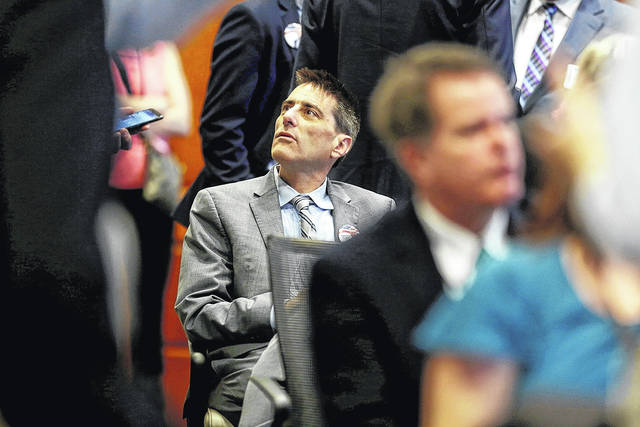
Dallas Woodhouse, executive director of the North Carolina Republican Party, is seated in the crowd during the public evidentiary hearing on the 9th Congressional District investigation Monday.
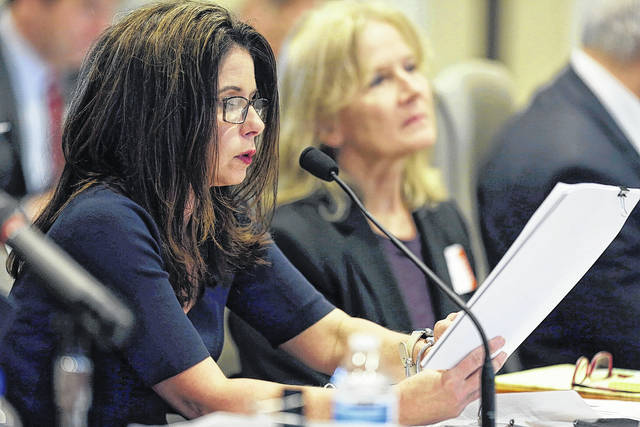
Kim Strach, executive director of the Board of Elections, questions the first witness during the public evidentiary hearing on the 9th Congressional District investigation Monday.
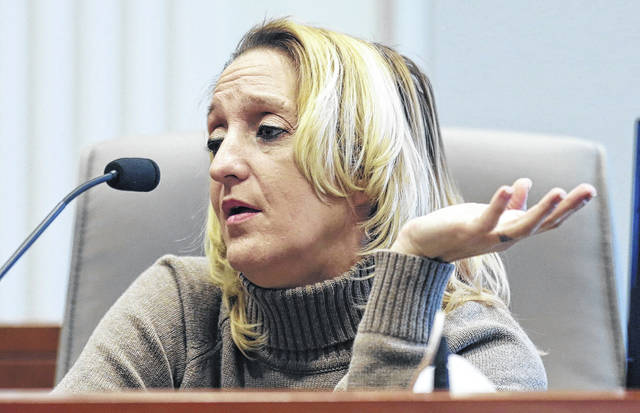
Lisa Britt answers a question by Kim Strach, the executive director of the Board of Elections, during the public evidentiary hearing on the 9th Congressional District investigation Monday.
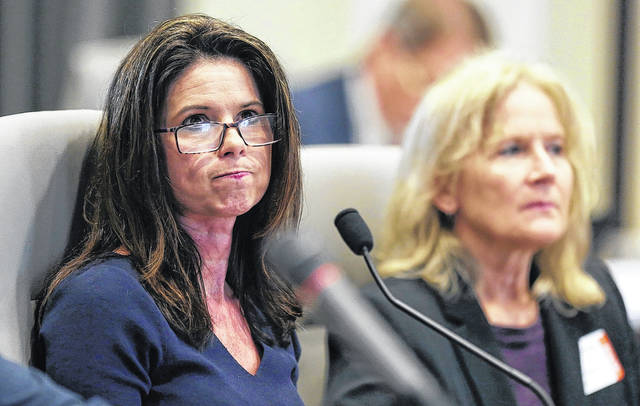
Kim Strach, executive director of the Board of Elections, listens during the public evidentiary hearing on the 9th Congressional District investigation Monday.
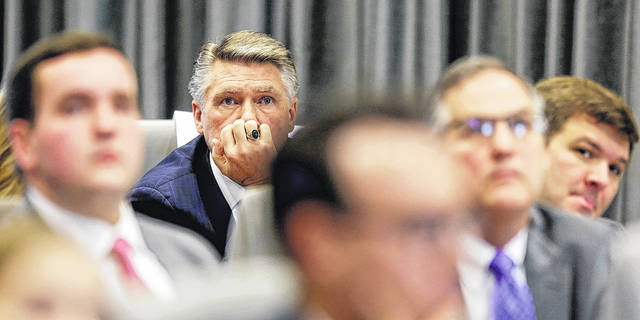
Mark Harris listens to the public evidentiary hearing on the 9th Congressional District investigation Monday.
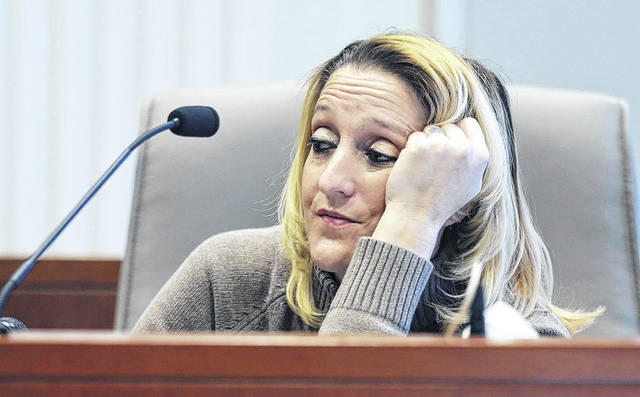
Lisa Britt pauses before answering a question by the executive director of the Board of Elections, Kim Strach, during the public evidentiary hearing on the 9th Congressional District investigation Monday.

